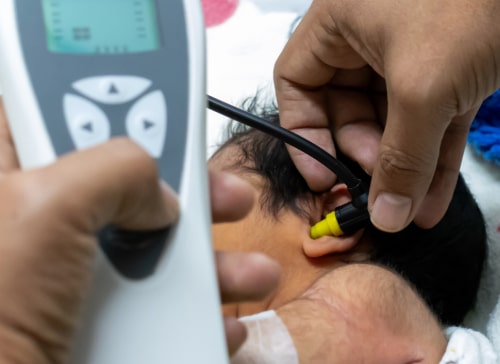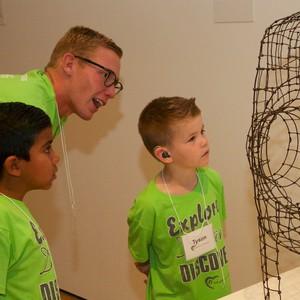What is Tinnitus?

1 out of every 6 people experience some form of tinnitus. For some, it can be debilitating while others are able to ignore it. The varying effects can be frustrating for those whose experiences are worse on the continuum. That is why we want to share with you some information about this common phenomenon as part of National Tinnitus Awareness Week.
What is Tinnitus?
Tinnitus is defined as a perception of sound when no external noise is present, most often noticed during quiet activities. It is routinely described as a high- or low-pitched ringing sound. However, it can also sound like buzzing, chirping, hissing, clicking, rushing, static, or other sounds. Tinnitus is commonly a symptom of damage to the hearing system (hearing loss), loud noise exposure, conditions of the ear, certain medications, and temporomandibular joint disorder (TMJ) to name a few. When there is damage to the hearing organ, or cochlea, a person’s brain tries to compensate for the lack of auditory input by creating a sound perceived as tinnitus. It can sound different to each person, and it can affect each person differently.
How can tinnitus affect daily life?
Tinnitus can cause:
When Should I Seek Help?
While there is no cure for tinnitus at this time, there are ways it can be managed. When should you seek help for it?
- If you are experiencing any kind of hearing difficulties, the first step is always to visit an audiologist and have your hearing checked. Many times, treating hearing loss by wearing technology can help reduce tinnitus significantly.
- Being in a sound enriched environment can also help when sleeping or doing quiet activities. Sound that can enrich your environment includes fans, humidifiers, television, music, or sound machines.
- If you begin noticing you are unable to sleep, concentrate, or enjoy regular activities in your daily life because of your tinnitus, we encourage you to schedule a tinnitus consultation to learn about other techniques you can try.
- If you feel the tinnitus is getting to a level where self-harm may be a possibility, please immediately contact a medical professional.
Support Our Mission!
You can help us bring the gift of listening and spoken language to more Oklahomans.



